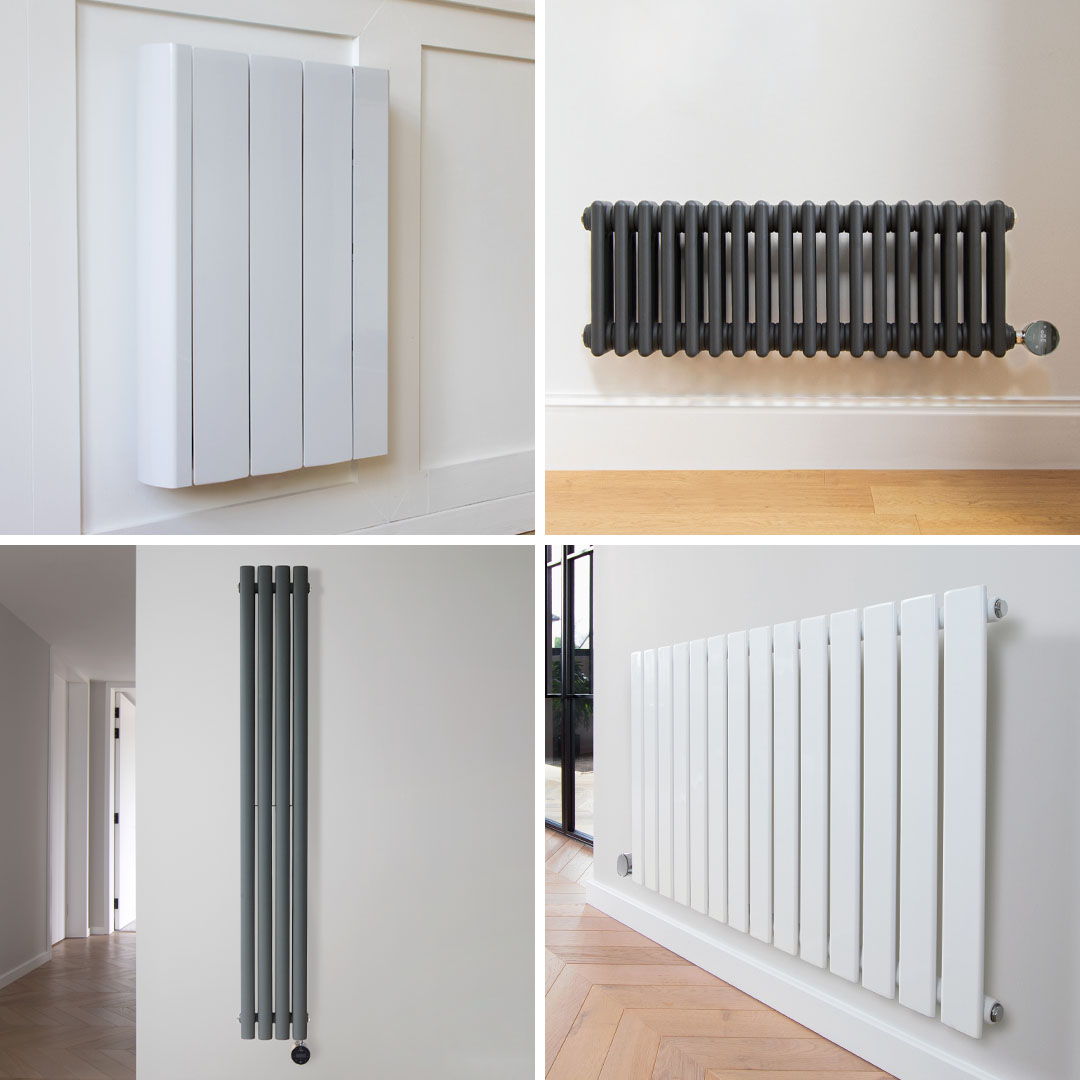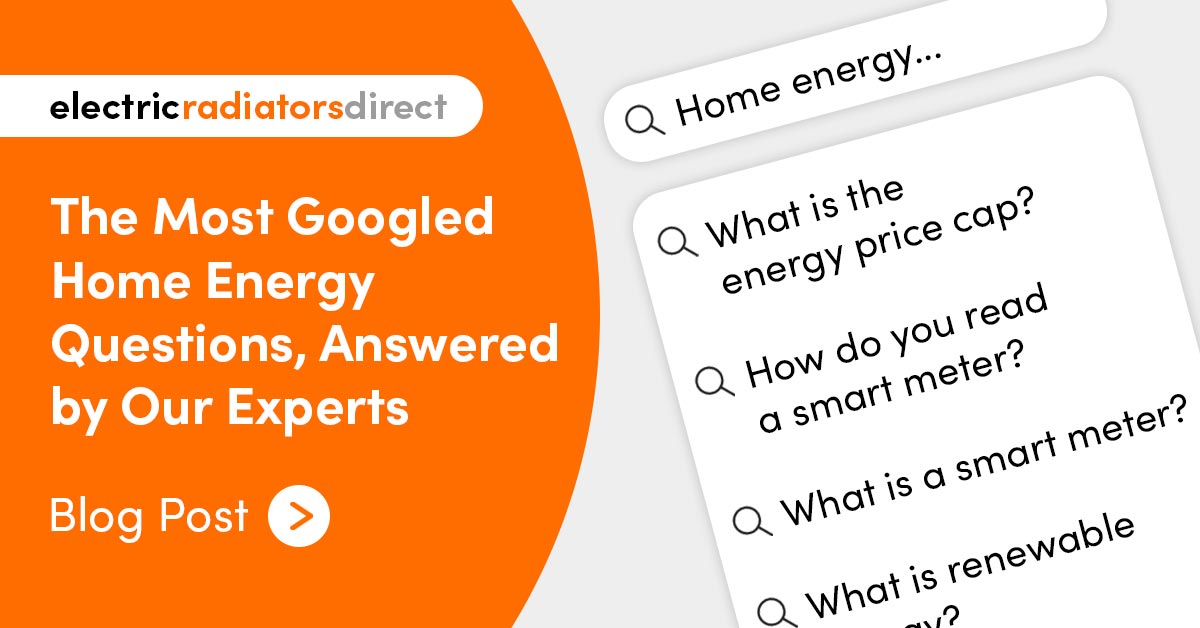

Alongside rapidly increasing energy prices, high inflation and interest rates are continuing to spark fears that the cost-of-living crisis may not be going anywhere anytime soon. As we navigate through these unprecedented financial times, it’s only natural that Brits may have a lot of questions about how to reduce their bills in the coming colder months.
To help, we’ve identified the most Googled home energy questions, as well as surveyed 2,000 UK adults to dig deeper into what the nation already knows. From smart meters to slow cookers, we’ve discovered the most common queries relating to key home energy tracking and usage.


What we found...
When it comes to turning to Google to seek advice, we found that there are around 50,000 searches per month for questions relating to energy bills. The question that Brits are most unclear on is ‘what is the energy price cap?’ with an average of 5,400 monthly searches in the UK. And when looking at our survey, nearly half (42%) also admitted they aren’t confident on this subject.
Our research also revealed that many Brits are pursuing more economically viable ways to track their energy usage too, with an average of 4,400 monthly searches in the UK for ‘how do you read a smart meter?’. However, over a quarter (26%) told us they have no idea how to calculate their electricity bills and a further 31% aren’t sure either.
So, allow us to lend a hand!
Answering the most commonly Googled home energy questions...
With a lot of information out there, finding the correct answer to your question can be difficult. To offer some guidance, our energy expert Stephen Hankinson has answered the top 10 energy questions that Brits want to know.
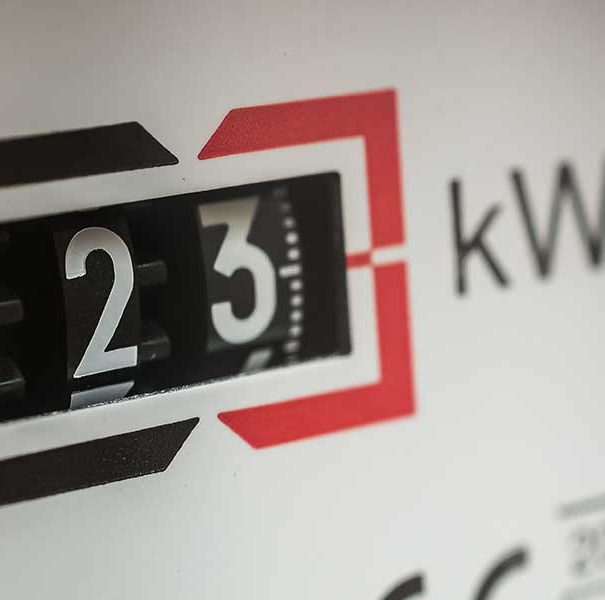

1. What is the energy price cap? (5,400 average monthly searches)
The energy price cap is essentially the government’s energy price guarantee. It is a cap on a unit of gas and electricity, with standard charges considered. This can be confused as a cap on the public's overall energy bills; however, this is not the case. The price of your bill will still rise or fall in line with the amount of energy a customer is consuming. From 1st October 2023 the energy price cap is estimated to be £1,923 a year for a ‘typical’ household.
Alongside the 5,400 average monthly searches, over two fifths (42%) of those surveyed said they couldn’t confidently answer this question. Those in Manchester are the most unsure, with 35% admitting they would have to Google the answer to this.
2. How do you read a smart meter? (4,400 average monthly searches)
The idea of a smart meter is that it sends the readings to your supplier automatically, so you shouldn’t have to perform a manual reading. In some cases, however, if you’ve just switched suppliers or if the new supplier is struggling to connect to your meter, you may need to send the first reading yourself.
The most common type of smart meter is called a SMETS 1 meter. If you have this type of meter, this is how to take your reading:
Step 1
Press 6 on the keypad.
Step 2
You should then see the letters IMPRO1 appear on the screen.
Step 3
Wait a moment until you see a figure followed by “kWh”.
Step 4
The last 7 digits of that figure are your smart meter reading.
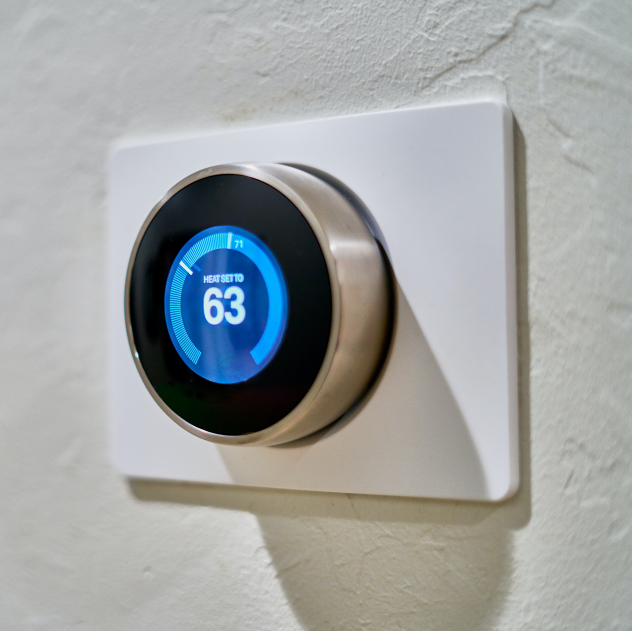

3. What is a smart meter? (2,900 average monthly searches)
A smart meter is a more intuitive way of giving information on the energy usage in your home, tracking both gas and electricity. It sends your energy supplier automatic updates so there’s no need to worry about manually keeping it up to date.
Those in Bristol seemed most unclear on this topic, with exactly half (50%) of those in this city saying they weren’t sure what a smart meter was.
4. What is renewable energy? (2,900 average monthly searches)
Renewable energy comes from a green source that will never run out, such as wind or solar power. Usually, renewable energy is more environmentally friendly as it has a lower or zero carbon footprint.
Considering the cost of a solar power system, it could take up to 17 years to break even.
To help tackle rising energy costs, homeowners can invest in solar panels for their property, resulting in potentially long-term lower electricity bills. Based on estimates from the Energy Saving Trust, a typical household can save up to £420 a year on bills at the current energy price cap rates.
However, considering the cost of a solar power system can be upwards of £7,000, it could take up to 17 years to break even.
If solar panels are out of your budget, here are three ways electric radiators can help save you money on your energy bills:
Precise digital thermostats
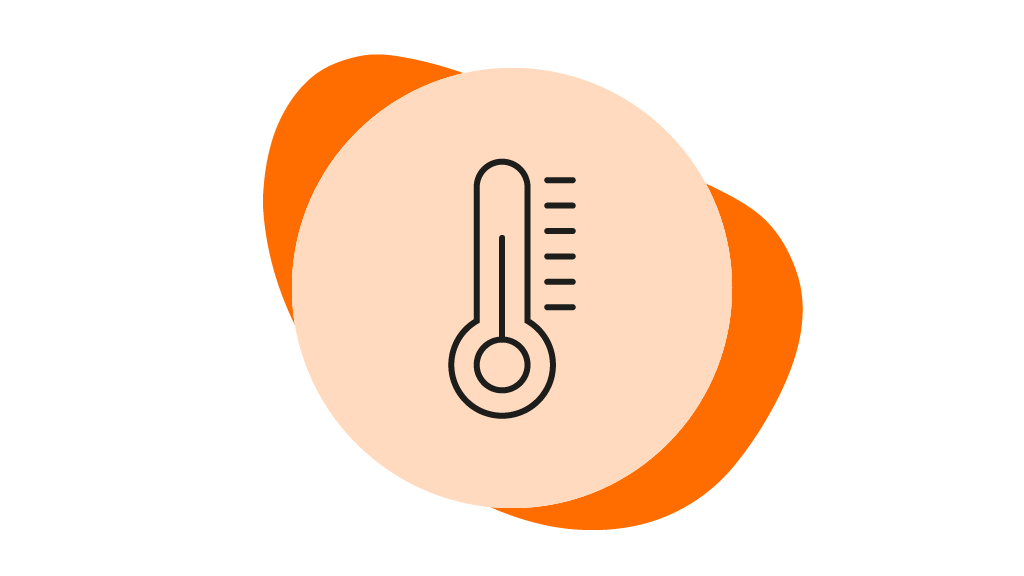

Regulate the temperature of your room, preventing overheating and minimising wasted energy.
Open window detection


Senses sudden drops in temperature, automatically switching your radiator to a lower, energy-saving mode to prevent wasting heat through open windows or doors.
Weekly programming


Sets a tailored heating schedule to match your routine, so no energy is wasted when heating isn’t needed.
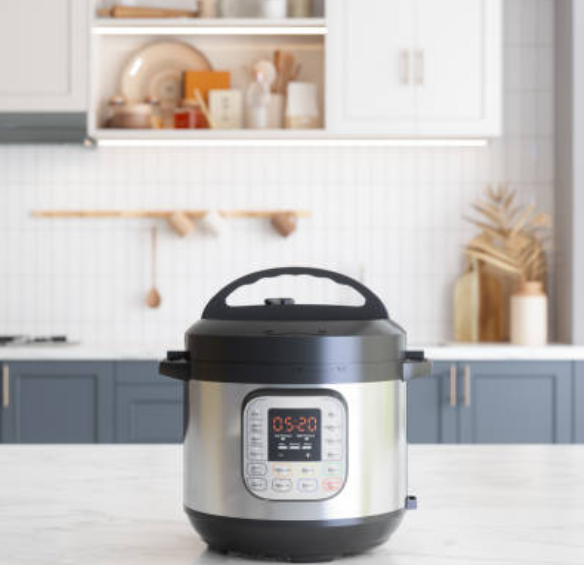

5. Are slow cookers more energy efficient than other cooking methods? (1,900 average monthly searches)
Alongside 1,900 monthly searches, exactly half (50%) of those surveyed said they weren’t sure if slow cookers are more energy efficient than other cooking methods. Understandably, it can be tricky to work out which of your kitchen’s appliances are energy efficient, based on your cooking needs.
Slow cookers are designed to cook food slowly, at a low temperature and keep it hot the whole day, leading to a common misconception that they aren’t energy efficient. So, although they take longer to cook food, an average-sized slow cooker uses just 1.3 kWh per meal. When broken down to an hourly cost, this comes in at 9p on an average energy tariff. Slow cookers are rated at as little as 200 watts, making them one of the most energy-efficient appliances in your kitchen – a tenth of some electric ovens.
Our survey shows that those in Norwich were most likely to Google this question, with over two fifths (44%) admitting they weren’t sure on the answer.
6. Which UK supplier has the cheapest energy tariff? (1,600 average monthly searches
Not only does this question have an average of 1,600 monthly searches, but this is also the home energy question that the survey revealed Brits are most unclear about, with over four in five (83%) saying they couldn’t answer this.


Although this may depend on your address, according to UniAcco the cheapest energy suppliers in the UK are:
It’s important to note that this is an ever-changing list and energy supplier prices are expected to fluctuate and fall. This list is subject to interpretation – what one person considers cheap is not necessarily the same as another. It also heavily depends on the area you live in, so please take this into account when choosing your energy supplier.
7. Which heating system is the most energy efficient? (1,600 average monthly searches)
As running costs and energy efficiency are hard to compare, this can be a tricky question to answer. Energy unit prices and standing charges for gas are currently cheaper than electricity, but if its energy efficiency you’re looking for, electric heaters win.
Efficiency


With gas central heating, there are too many system losses for it to be considered efficient – either through the combustion process or through heat lost via the pipes. Electric heating doesn’t have this problem. All the heat provided by an electric heater is released into the room, so nothing is wasted at point of use. They also work as standalone appliances, so they heat areas on a room-by-room basis, which means no more wasting energy heating unoccupied rooms.
Cost


The cost of electric heaters can differ too depending on size, model and method of installation you chose. Generally, electric radiators can cost anywhere from £200 to over £800 - if you’re looking for something a little more commercial sized.
Installation


Many electric heaters are suitable for DIY installation: they simply screw to the wall and plug into a normal 13amp socket. However, if you’re installing more than one radiator, or want to ensure you have a seamless finish, we suggest hiring a professional to do this for you.
Maintenance


With zero maintenance, there are no annual callout costs with electric heating, making them a cheaper heating solution in the long run.
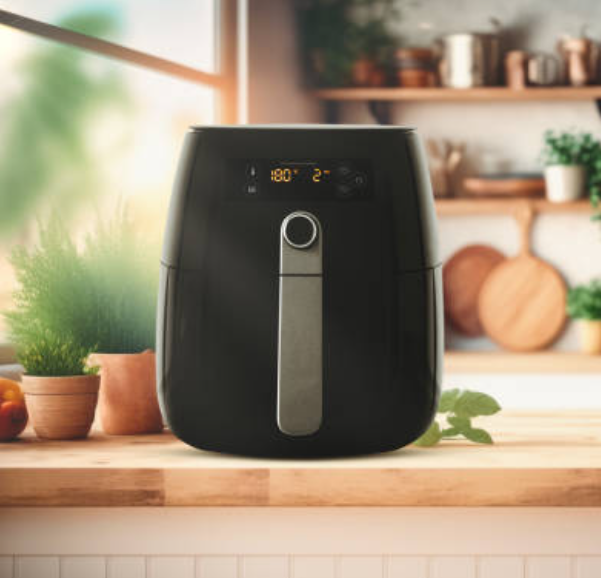

8. Are air fryers more energy efficient than other cooking methods? (1,000 average monthly search volume)
Alongside 1,000 average monthly searches, over two fifths (41%) of those surveyed said they weren’t sure about the energy efficiency of air fryers. The short answer is, yes, air fryers often use half the energy compared to ovens or the hob; so they’re perfect for people keen to be more efficient.
Considering the average 2,200W electric oven costs around 85p per hour, a 1,500W air fryer is far more cost effective at an estimated 51p per hour. Air fryers also cook much more quickly in comparison to ovens, with no pre-heat timings an air fryer’s average cooking time is 30 minutes or less, making their cost per use around 17p.
For big families, you may have to factor in how many uses of the air fryer it will take to provide a meal to feed everyone. As well as air fryers costing anywhere between £30-£300, you must factor in the initial payment.
The survey shows those in Glasgow are most unsure on this topic, with over a third (35%) unable to confidently answer if their air fryer is more efficient than their oven or not.
On average, Brits will be expected to use an extra 36% of electricity on a winter’s day in comparison to a summer's day.
9. How much will my energy bill go up this Winter? (1,000 average monthly searches)
From 1st October 2023, the energy price cap is estimated to be £1,923 a year for a typical household using gas and electricity and pay by direct debit. However, the amount you pay is dependent on your usage as well as other factors such as the type of meter you have and where you live. On average, Brits will be expected to use an extra 36% of electricity on a winter’s day in comparison to a summer's day, so, it's worth keeping this in mind when considering how much your bills may rise.
According to our survey, nearly half of over 65s (48%) say they don’t know how much their energy bill will go up this winter, but it’s important to plan your finances in advance.
10. How do I switch my energy supplier? (880 average monthly searches)
Be aware that switching energy suppliers doesn’t always mean you’ll be saving money. If you’re on a standard variable tariff you can switch at any time. However, if you’re on a fixed tariff you can only switch if you have 49 days or less left on your contract – anymore than this and you will likely be charged an exit fee.
When you have picked out a new supplier you need to contact them to switch – but don’t worry about contacting your current supplier, the new supplier will do this.
Top Tip:
Make sure to take a meter reading on the day you agree to switch to give to your new supplier. Once you have paid your old supplier’s final bill, you’ll be good to go!
Other commonly Googled home energy questions include...
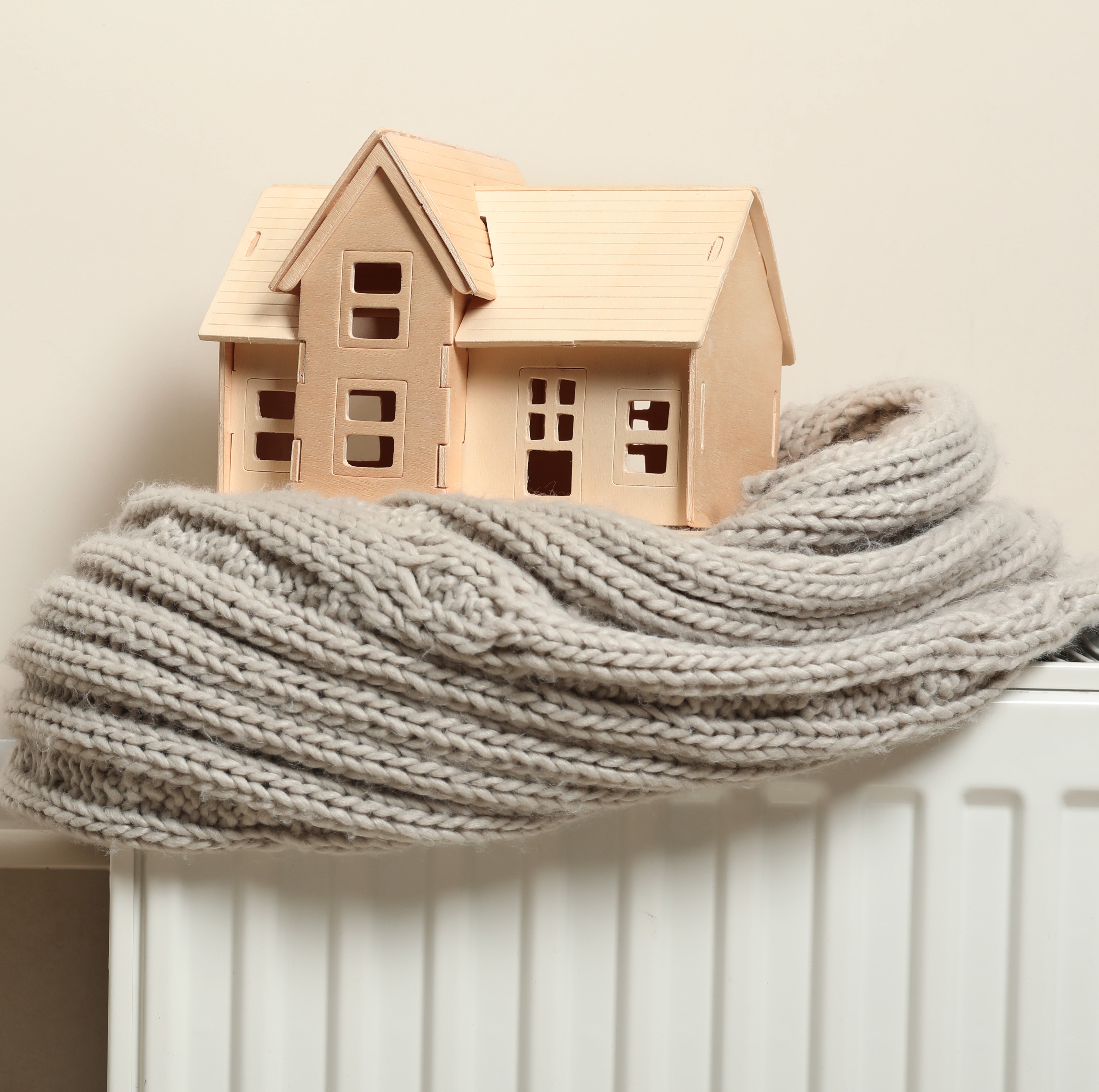

How can you keep your house warm in winter without putting the heating on more? (590 average monthly searches)
If you’re looking to find ways to keep warm this winter without turning up the thermostat, we recommend zoned heating. Zoned heating is the process of programming different temperature settings for each individual heater in your home – for example, having your bedroom radiator set to 22˚C and your bathroom towel rail to 18˚C.
Another option is adding loft insulation to save on your bills – it’s reported that a quarter of heat is lost through the roof in an uninsulated home. If you have an easily accessible loft without damp issues, adding insulation could be as simple as a DIY job.
Energy Saving Trust estimates a well-insulated loft can save up to £45 a year for a detached house. They also say it can cost between £590-£890 to properly insulate a loft.
How much do electric radiators cost to run? (480 average monthly searches)
Calculating the running cost of your electric radiator is easier than you think!
Our simple calculation estimates how much you’re likely to spend in 5 easy steps.
(Radiator output kW x hours in use) x pence per kW hour = daily cost of radiator (p)
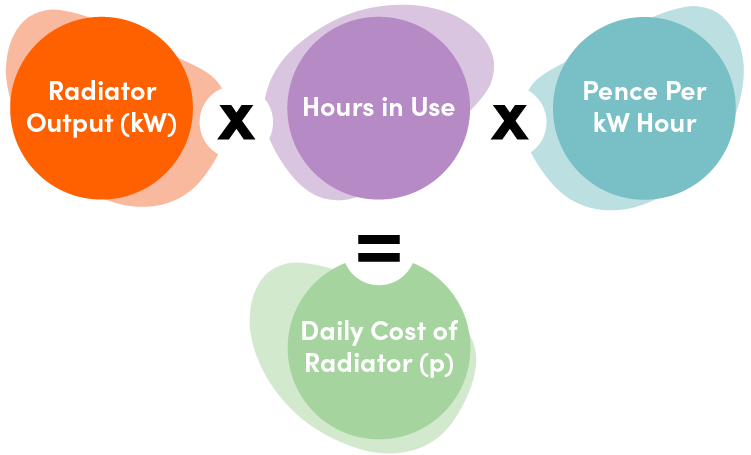

For example, for an 800w radiator used on full power for 4 hours a day, multiply 0.8kW by 4 to give you 3.2 kW/h. So, if you’re electric tariff costs 12p per kilowatt hour, simply multiply 3.2 kW/h by 12p, equalling 38.4p.
However, this calculation provides more of a general estimate and fails to consider other factors such as:
Energy-saving features
In-built features include WiFi app control, precision thermostats, 24/7 programming and motion sensors.
Changes in weather
The temperamental British weather means it's difficult to predict the day-to-day temperature – this can influence your overall bills.
Size of your room
Smaller rooms will heat up quicker, requiring less energy.
Home insulation
How well insulated your home is will have an overall effect on your bills. The better insulated your home, the less energy needed to keep it warm.
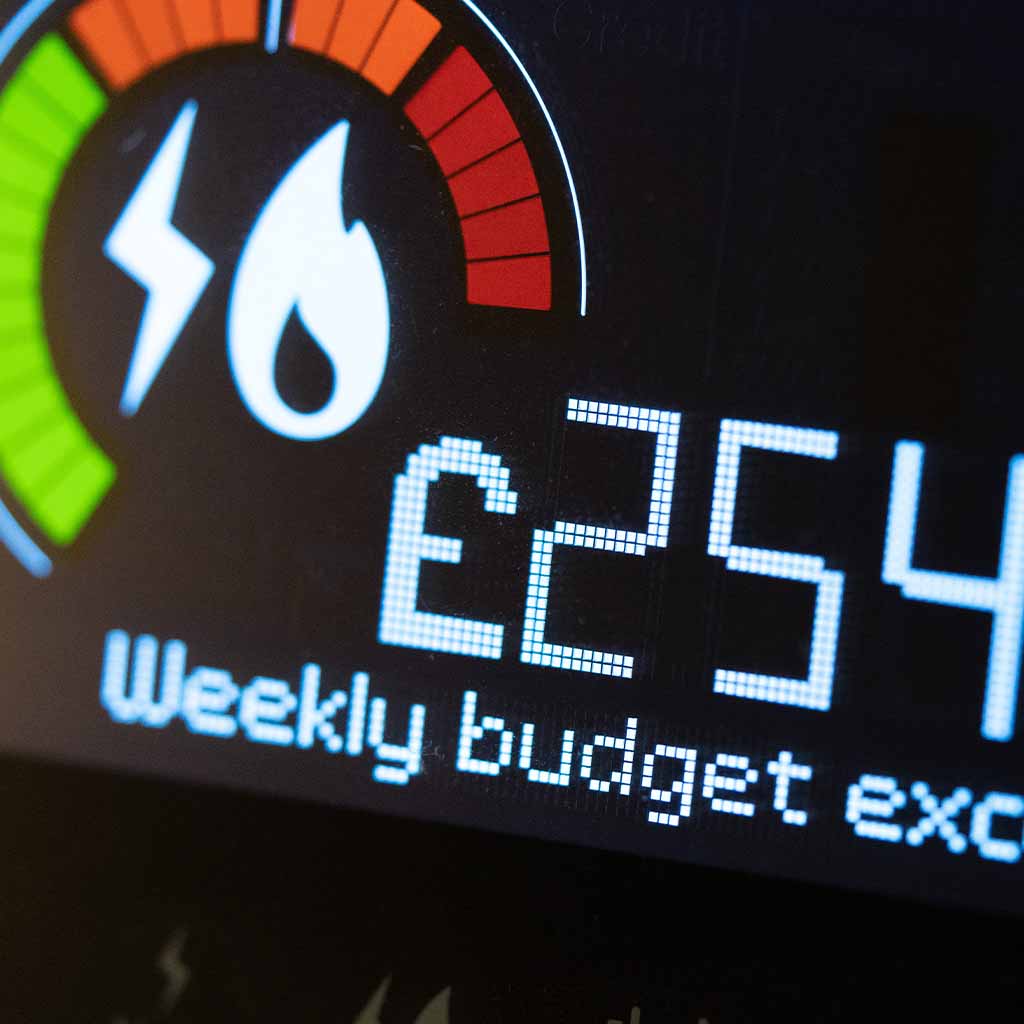

How do you calculate the cost of electricity bill from your usage? (260 average monthly searches)
To calculate the cost of your electricity bill, you must first find a previous meter reading (and the date you took it) and a current meter reading. Subtract the current reading from the previous one to work out how much energy you used during that time period. This number will be in kWH.
Multiply this number by the unit rate from the new energy price cap on October 1st (for direct debits, this is 27.35p per kWh).
You’ll then need to add the standing charge, which from October 1st is 53.37p per day for those who pay by direct debit. Multiply this by the number of days between October 1st and December 31st to find out how much you might be expected to pay between now and the end of the year, which will also be the end of the current energy price cap. It’s especially important to calculate this if you think your supplier is overestimating your usage.
Are electric radiators cheaper to run than gas central heating systems? (170 average monthly searches)
If you use a gas-fired boiler, you can roughly compare it to an electric alternative.
- The first step is to track how long you have your heating on for each day. Your current provider may even have exact figures you can utilise and will also provide your unit charge for electricity.
- Then you’ll need to understand exactly what kind of radiators you will need; the key consideration here is wattage.
- Multiplying the radiator’s output in kilowatts by the hours in use and then your unit charge will leave you with the daily cost of running each radiator. Let’s say your energy provider sells electricity at the 27p cap level and you install a 1000w radiator, suitable for a small room, then run it for six hours a day.
The sum is 1 x 6 x 0.27, which comes to £1.62 – do this for each radiator in the house and see how the total compares to your current bills.
In this video, we're comparing the two for efficiency, control, maintenance and running costs to find out once and for all which heating system deserves the top spot.
Do appliances still use energy when on standby? (50 average monthly searches)
One common misconception is that devices don’t use any energy on standby, but this isn’t true. Although these appliances are unlikely to consume as much energy as your heating system, the cost can still add up if you usually leave devices on standby.
Keep an eye out for this, because it has been reported that turning off "vampire devices" might result in annual savings of up to £147 on your electricity bill.
Some of the worst offenders for using up energy while on standby are TVs and set-up boxes (from Virgin or Sky, for example). Combined, these can add a total of around £47 to your annual energy bill, according to British Gas.
Other devices you should take care to switch off at the wall each day include:
- Microwave: around £16
- Electric shower: around £10
- Washing machine: around £5
- Printer: around £4
- Phone charger: around £1
Which appliances in my house use the most electricity? (50 average monthly searches)


According to the Energy Saving Trust, the most energy consuming devices in your home are:
- Washing machines, dishwashers and tumble dryers, which can account for a whopping 14% of an energy bill
- Fridges and freezers, which account for around 13% of an energy bill
- Laptops, TV’s and gaming consoles, which can account for around 6% of an energy bill, based on usage
- Lights, which account for around 5% of your energy bill
- Cooking appliances, such as ovens, kettles and microwaves, which account for around 4% of your energy bill
If you’re still unsure…
If you’re still unsure about what's best for your energy bills this winter, we’ve listed some websites below that can help.
- More info on the types of meters and how to read each here: https://www.citizensadvice.org.uk/consumer/energy/energy-supply/your-energy-meter/how-to-read-your-smart-electricity-meter/
- For more information on how much energy bills will go up this winter visit: https://www.ofgem.gov.uk/information-consumers/energy-advice-households/energy-price-cap
- For budget home heating visit: https://www.electricradiatorsdirect.co.uk/electric-heaters/
- For more information on renewable energy, visit: https://www.nationalgrid.com/stories/energy-explained/what-are-different-types-renewable-energy
Browse our range for cost-effective heating
As we navigate rising energy costs and increasing uncertainties, it's crucial to take control of your energy consumption and explore smarter, more cost-effective solutions. Investing in high-quality, modern electric heating systems can be a game-changer for your home's energy efficiency. Offering precise temperature control, energy-saving features, and the ability to heat rooms as needed, our range eliminates the waste and puts full control in your hands.
So, browse our range of electric heaters today and find the perfect solution for your home and budget. If you have any questions, don’t hesitate to get in touch with our team of experts who will be more than happy to assist you.
Key learnings
✓ The cost-of-living crisis is intensifying due to surging energy prices, inflation, and interest rates, prompting widespread concerns among Brits.
✓ Google searches reflect the growing need for information, with energy-related questions attracting around 50,000 monthly searches.
✓ Common queries involve understanding energy price caps, reading smart meters, and evaluating the efficiency of appliances like slow cookers and air fryers.
✓ Many of the people surveyed lack confidence in their knowledge of key energy topics, highlighting the importance of accessible and accurate information.
✓ Identifying the cheapest energy supplier remains a challenge, with prices fluctuating and varying by location, emphasising the need for ongoing research and comparison.
✓ Energy-saving measures, such as zoned heating and insulation, can help mitigate rising energy costs and reduce environmental impact, offering practical solutions to consumers.
Methodology and Sources
- Using SEMrush, Electric Radiators Direct analysed the most searched for queries relating to key home energy topics, such as smart meters and energy bills
- Alongside this, Electric Radiators Direct surveyed 2,000 UK adults to determine how many Brits felt confident enough to answer these questions, and how many are unsure.
Data Sources
- A survey of 2,000 nat rep UK based respondents in August 2023
- SEMrush search volume insight pulled August 2023
- https://www.moneysavingexpert.com/utilities/what-is-the-energy-price-cap/
- https://www.ofgem.gov.uk/publications/energy-prices-fall-again-winter
- https://www.citizensadvice.org.uk/consumer/energy/energy-supply/your-energy-meter/how-to-read-your-smart-electricity-meter/
- https://sse.co.uk/smart-meters
- https://www.nationalgrid.com/stories/energy-explained/what-are-different-types-renewable-energy
- https://www.uswitch.com/energy-efficiency/energy-efficient-cooking/
- https://uniacco.com/blog/cheapest-energy-suppliers
- https://www.which.co.uk/news/article/oven-air-fryer-slow-cooker-or-hob-comparing-the-cheapest-ways-to-cook-a0kmu7Z7tBhJ
- https://www.ofgem.gov.uk/information-consumers/energy-advice-households/energy-price-cap
- https://www.citizensadvice.org.uk/consumer/energy/energy-supply/get-a-better-energy-deal/switching-energy-supplier/
- https://www.gov.uk/guidance/energy-bills-discount-scheme#:~:text=The%20Energy%20Bills%20Discount%20Scheme%20runs%20for%2012%20months%20from,2022%20and%2031%20March%202023.
- https://www.electricradiatorsdirect.co.uk/news/are-electric-radiators-expensive-to-run/
- https://www.idealhome.co.uk/property-advice/how-to-calculate-a-gas-bill-299789#:~:text=Multiply%20the%20m3%20figure%20by,work%20out%20your%20gas%20charge.
- https://dictionary.cambridge.org/dictionary/english/energy-efficient
- https://www.eesi.org/topics/energy-efficiency/description
- https://www.moneysavingexpert.com/utilities/free-solar-panels/
- https://www.yesenergysolutions.co.uk/advice/how-much-energy-solar-panels-produce-home#:~:text=Most%20residential%20solar%20panels%20on,1%20kW%20and%204%20kW.
- https://www.which.co.uk/reviews/cutting-your-energy-bills/article/how-to-estimate-your-energy-use-aRvZI4f6pTYg
- https://octopus.energy/blog/how-to-read-your-meter/
- https://www.moneysavingexpert.com/utilities/free-solar-panels/
- https://www.electricradiatorsdirect.co.uk/news/are-electric-radiators-expensive-to-run/
- https://www.electricradiatorsdirect.co.uk/news/are-electric-radiators-expensive-to-run/
- https://www.switchcraft.co.uk/energy/bills/what-is-the-average-gas-and-electricity-bill-in-the-uk/#:~:text=On%20average%2C%20electricity%20usage%20is,be%20considerably%20higher%20through%20winter.
- https://www.theecoexperts.co.uk/home-hub/air-fryers-energy-efficient#:~:text=Yes%2C%20air%20fryers%20are%20economical,per%20use%20is%20around%2017
- https://energysavingtrust.org.uk/top-five-energy-consuming-home-appliances/
- https://energysavingtrust.org.uk/advice/roof-and-loft-insulation/






